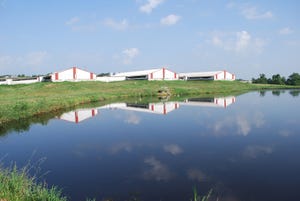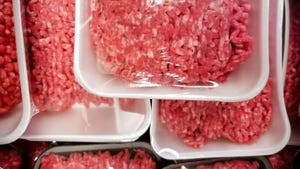Battle over dietary guidelines is all about politics, not science
March 26, 2015

The battle over the federal dietary guidelines is now in full swing. Public hearings got underway this week on the Dietary Guidelines Advisory Committee’s (DGAC) proposed recommendations for the five-year update that will become the 2015 Dietary Guidelines for Americans.
The DGAC’s move away from nutrition and science in that report in order to advance a philosophy and agenda under the great “sustainability” umbrella sent shock waves throughout our industry and the scientific community in general.
When it comes to Washington, D.C., science and policy have always gotten entangled in an unholy alliance that scientists have abhorred but largely accepted because it also drives research funding. Nonetheless, the departure of the DGAC away from science, except only as window dressing for the agenda they want to pursue, has caused heartburn throughout the scientific community and not just among nutritionists and the ag industry.
Everyone understands this is not a scientific debate; in many respects, it’s not even a policy debate. This is an ideological debate and it will be won and lost on the political battlefield. In fact, the opponents of animal agriculture and meat-based diets have gone as far as running full-page ads in national newspapers. These ads in the New York Times and Washington Post urge people to call and write in support of the DGAC sustainability language that made this report so highly controversial. If you want to see the website these ads are directing consumers to, go to myplatemyplanet.org.
It’s important that cattlemen and consumers take advantage of the comment period that has been extended to May 8. Our voices must be heard because the opposition is pulling out all stops. While USDA Secretary Tom Vilsack has signaled that he would support a return to a science-based approach, the latest DGAC report fundamentally changed the entire dietary guideline process; it’s now simply a political process.
As consumers realize that the dietary guidelines are nothing but a political mechanism in a broader political battle, the impact of them will continue to diminish. Yet the DGAC report essentially signals that the opponents of livestock production are okay with making the dietary guidelines a complete farce.
In effect, they have conceded that science and nutrition won’t allow them to stop livestock production, so they’re putting their hope into the new umbrella called sustainability. It encompasses virtually everything but, most importantly, it encompasses the moral high ground. If it can be argued under the banner of sustainability, then anything can be justified.
This is a battle for control of the word sustainability in the political realm. Sustainability is in the DNA and code of agriculture, and a fundamental principle to what every farmer and rancher in America believes. Sustainability, if scientific-based and morally assessed, will be our greatest opportunity.

70+ photos showcasing all types of cattle nutrition
Readers share their favorite photos of cattle grazing or steers bellied up to the feedbunk. See reader favorite nutrition photos here.
However, these anti-agriculture, anti-meat, anti-capitalist groups are working hard to co-opt this word and the control of it. If they’re successful, they will attempt to use sustainability as the moral high ground to force their agenda on the American consumer, and American agriculture.
It is vitally important that we are at the table and that we do not allow these groups to distort sustainability to advance their agendas.
The opinions of Troy Marshall are not necessarily those of beefmagazine.com and the Penton Agriculture Group.
You might also like:
70 photos honor the hardworking cowboys on the ranch
7 common fencing mistakes to avoid
60 stunning photos that showcase ranch work ethics
What you need to know about cattle ingesting net wrap
About the Author(s)
You May Also Like



